Dorothy Alice Felux (nee Kreitz)
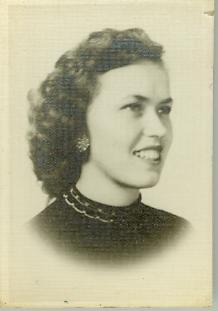
Elmendorf, TX
March 15, 2007
Derrick Michael Felux
Palo Alto College
History 1302 - Spring 2007
INTRODUCTION
Dorothy Alice Felux (nee Kreitz) was born in San Antonio on April 6, 1938 to Olga and Frank Kreitz. She has two sisters, Teresa Kreitz and Anna Marie Kreitz and had 5 brothers: Johny, Frank, Henry, Maurice, and Edward (who died at two months old of pneumonia). Her two sisters are still alive today, but all her brothers are deceased. Born in San Antonio, she grew up in Elmendorf, TX. As a little girl, she liked to play basketball, volleyball, and baseball; she also enjoyed riding horses. She obtained a full high school education, graduating in 1956 from East Central High School in Elmendorf TX. While growing up she never attained a paying job, instead she stayed home and helped take care of the family. In 1958 at the age of 20 she married to her current husband, Fabian Felux, at Saint Anthony’s Catholic Church in Elmendorf TX. My connection to Dorothy is my grandmother.
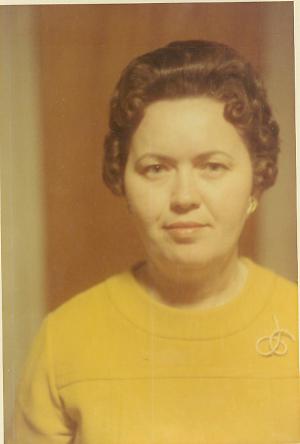
TRANSCRIPTION
What did your parents do for a living?
My Daddy was a carpenter, and my mom raised chickens and turkeys.
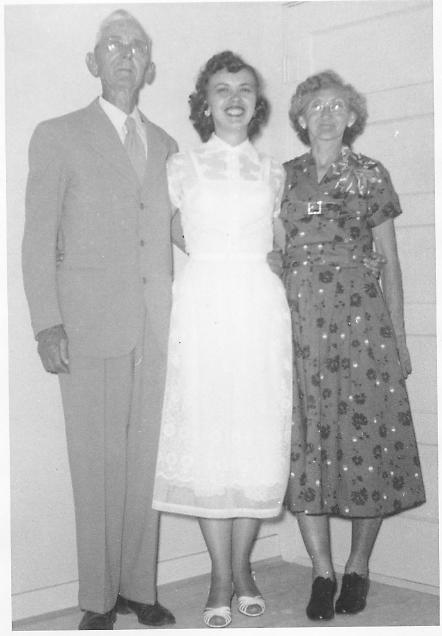 What did a typical day as a kid consist of? Did it change as you got older?
What did a typical day as a kid consist of? Did it change as you got older?
We had to shuck corn and things like that after we got home from school for the cows, and the pigs and the chickens. And it pretty much stayed the same all throughout.
What was it like when y’all first got electricity?
Well, we were happy to have it (laughing). But we didn’t have a lot of conveniences, all we had were the lights and the refrigerators.
How big was your graduating class?
About 43 people.
As a teenager, did you attend any dances or parties? What were they like?
I just went to dances with my brothers, that’s all.
Where was your closest neighbor as a child?
It was about a quarter of a mile or so.
Did your family ever take vacations? If so, where?
No, we never took a vacation.
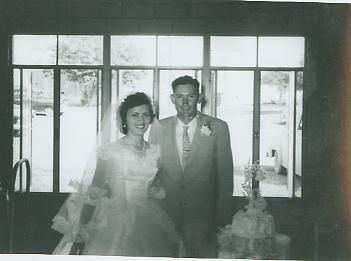 What was it like to get your first vehicle? How old were you?
What was it like to get your first vehicle? How old were you?
Well, I never had a car of my own. I drove my daddy’s car. It was a 40’s convertible…I don’t remember what it was.
When and where did you meet Grandpa?
We met at church. I guess I was about in high school or a little afterwards.
What was the wedding like?
(Laughing) Nerve-wracking.
Growing up, what would y’all do when somebody would get sick?
We just used home remedies. If we got too sick, then they’d take us to the doctor…we’d have to go all the way to San Antonio.
Are you happy with the changes technology has brought? Or are there some things that should have stayed the same?
(Thinking) I guess it’s better now.
Is there anything you would like to add to the interview?
When I was a kid, I helped mother out a lot at the house when I was growin up. I’d do a lot of canning, and I’d do embroidering, and sew my own clothes.
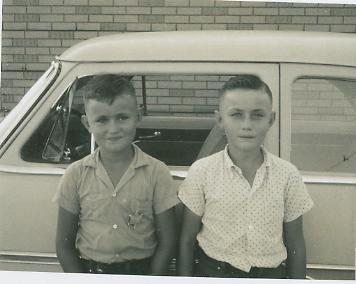
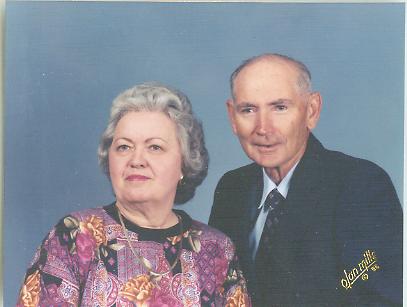
TIMELINE
- Interviewee's Name born on ______________________ to ______________________________ in ___________________________
- Moved to ____________________ in ___________________ for ___________
- Attended _____________ School beginning in _____
-
-
- Dropped out of school in the _______grade in _____ /Graduated from ____________ High School in __________
- Began full-time work as _______________________________ in __________
- Moved to ____________________ in ___________________ for ___________
-
- Married ____________________________ on ________________ in __________________________
- First child born in _______ at __________________________
-
-
-
- Death of ____________________ in _____ after ___________ of ________________
- Retired from _______________________ in ________
- Interviewed by ______________________________ on ________________________________
-
ANALYSIS
I learned basicly how different life is then to now. The way things are done now are very differnt from when our grandparents grew up. We have many more conveniences than when they grew up; more things are automatic now.
I would have to say the most important points made in the interview would be how much things have changed, in the way they are done since then.
I had not the slightest idea that my grandma was in sports when she was in high school. She was in basketball, and even received a trophy for her playing.
There were many different way she expressed her feelings. There were pauses when something important was being said, in order to "find" the words to say. There were the occasional laughs when a humorous memeory came about.
They taught me even though things have changed technological, life itself hasn't changed much.
Well, a lot of the things she told me were personal life things...ie dances and everyday life. But the things I was able to look up were the types of tools her father could have used, the types of home remidies her family would have used, and what embroidering was. Drawbacks, there isn't always the whole story; you only get the stroy from one perspective. There is also things forgotten and left out by that individual. As for the advantages, most of the things they tell you, you will never find in any history book you will ever read. They tell you the individual life, not the national life.
i feel that this is a very effective way of learning about the past. We can use our prior knowledge about whats going on around the nation, and then learn about the people of the nation.
ANNOTATED BIBLIOGRAPHY
Kids Health - shows the symptoms and effects of pneumonia
The History of Elmendorf - has a brief history of the small town of Elmendorf TX
Carpenter Tools - shows the different types of tools a carpenter would have used
Home Remedies Champions Pharmacy - shows all different types of home remidies for common illnesses
Fiber Images - tells you a history of embroidering and has the techniques used in creating embroidery
Return to Oral History Project
Created on
September 11, 2002, Revised January 29, 2007
What did a typical day as a kid consist of? Did it change as you got older?
What was it like to get your first vehicle? How old were you?